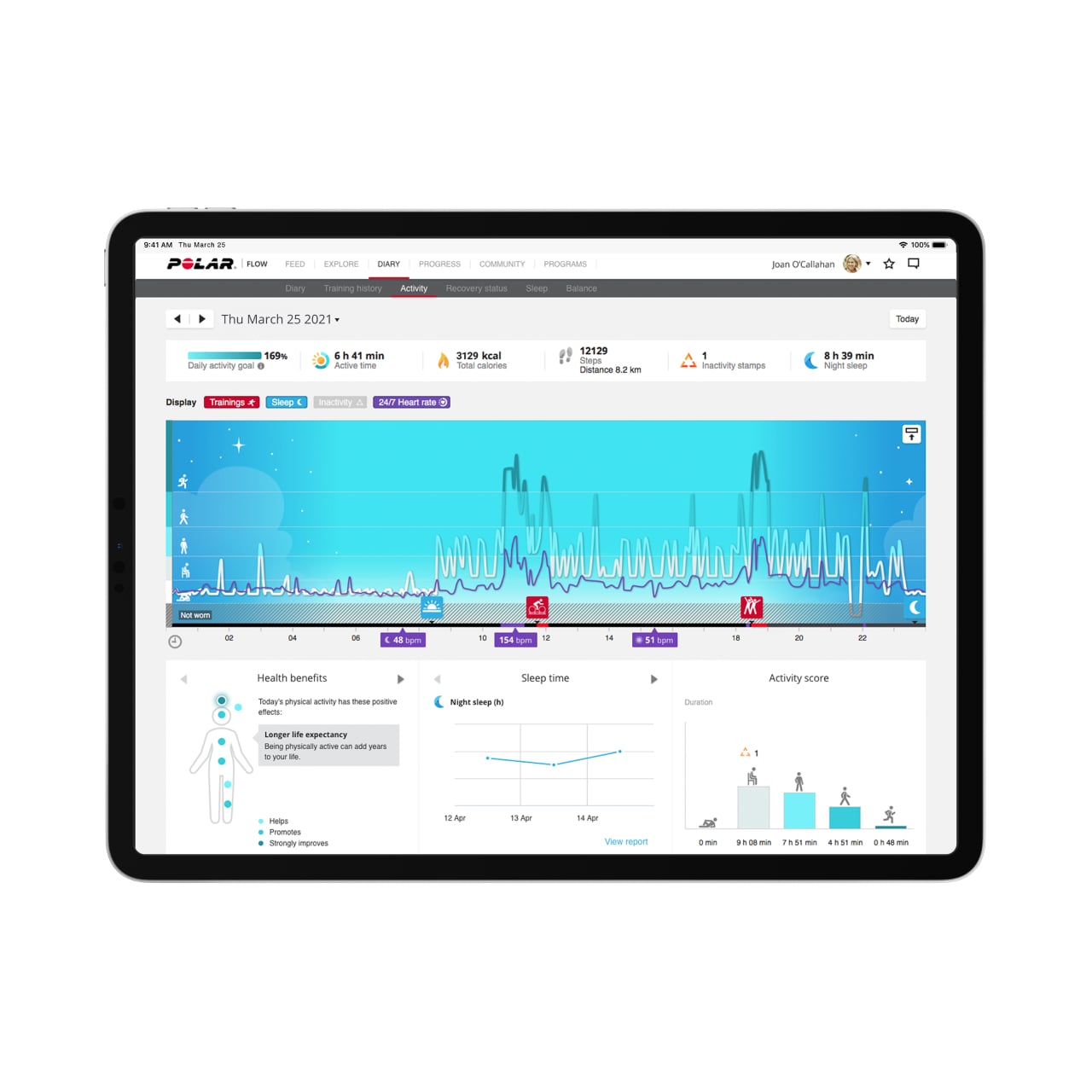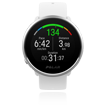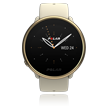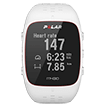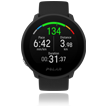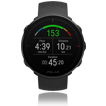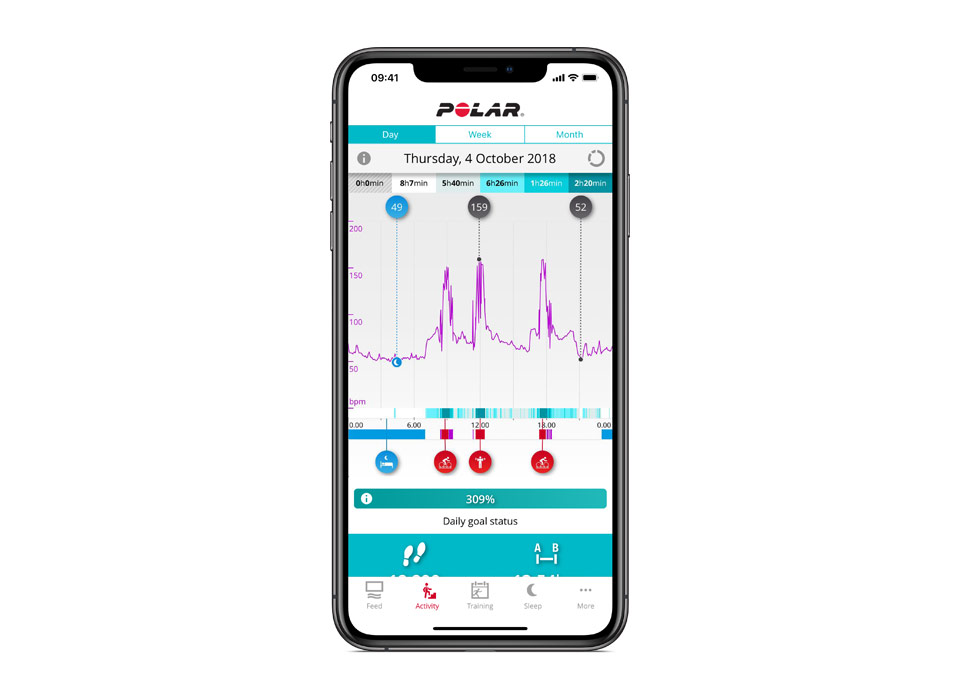What causes the changes in my heart rate during the day?
Demand to your muscles
Your heart rate mainly changes in response to the demands of your muscles during daily activities. For example, your heart will pump harder when you’re cycling compared to when you’re just sitting down. This is because your heart must deliver oxygen and energy nutrients to the muscles required to do the activity.
Stress and emotions
Other reasons that cause changes to your heart rate can also be stress and emotions. For example, excitement can raise your heart rate. If you are a competing athlete, you will probably see your heart rate elevated prior to a race, as well as during it. The nervousness or anxiety that you may feel before a race will also push you heart rate up. Your body's natural hormones prepare you for the challenge.
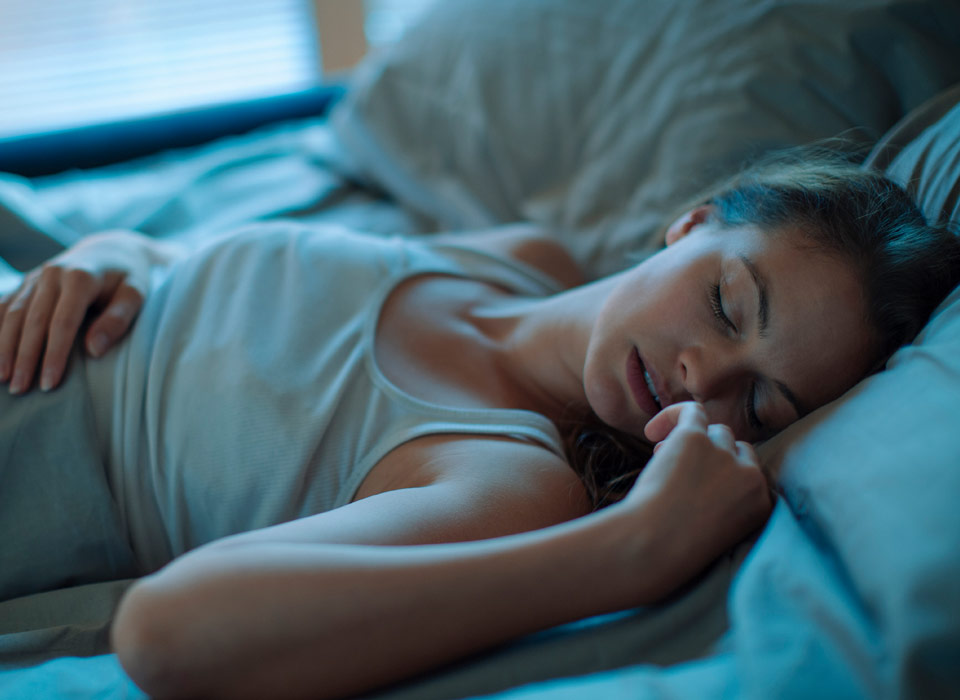
Sleep
During sleep your heart rate normally slows due to the complex regulatory mechanisms in your body. There is no standard range for heart rate during sleep because it is affected by your age, sex, cardiovascular fitness level and medications.
Your heart rate will also fluctuate throughout the night. The changes in your heart rate during a typical night’s sleep partly reflect the changes in the depth of your sleep.
The lowest heart rate during sleep can occur at different times on different nights. This reading often occurs when you’re in one of the deepest stage of sleep. You should, however, be aware that the lowest heart rate during your sleep is different from your resting heart rate. The resting heart rate is measured when you’re awake and lying down.


